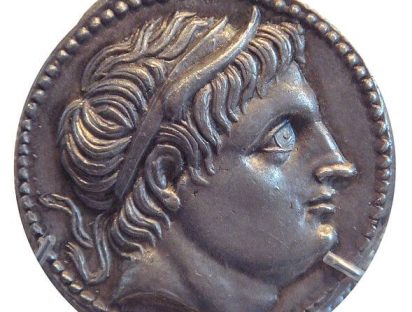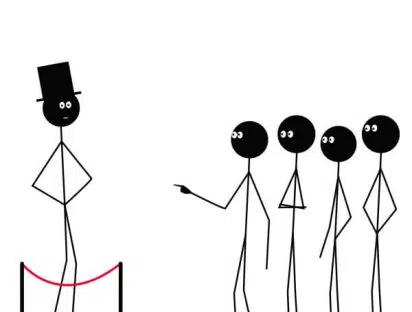
“Reasoning that, when traced backward from its conclusion, returns to that starting point, as one returns to a starting point when tracing a circle.” (4)
In the case of the ideal observer, the circularity (or vicious circle in which he finds himself) is as follows:
“The ‘ideal’ observer is ideal because she always makes proper judgments, those being defined as just those judgments the ideal observer would make.” (1)
Could a specific definition of an ideal observer avoid this circularity? Let us consider the following three possibilities, which aim to define such a character with minimal plausibility:
– either we endow the ideal observer with our personal ethical preferences in addition to rational characteristics, but we then make it the representative of our moral conceptions which, of course, may not be shared by everyone (this is the case we have just considered);
– or we make him the representative of all, or of society in general; but, in this case, the ideal observer is supposed to know all the preferences of the persons concerned, including their worldviews and ethical ideals; assuming that this is possible, the ideal observer should, in order to arrive at a moral judgment, make a utilitarian calculation based on the preferences of all, treating everyone equally, since he is (by definition) impartial;
– or we make him a purely rational being, whose decision-making procedures are logically indisputable.
The second and third possibilities seem to avoid the objection of circularity. But is that the case? Does the second not reduce society to a single being embodying everyone’s preferences, and defining the ideal observer as the sole representative of those who make up society? As for the third, if the reference to a purely rational being seems to be a guarantee of non-circularity (provided that one agrees on a definition of rationality), it faces a major difficulty. If he were a purely rational being, why would the ideal observer be interested in ethical issues? Because, as Bernard Williams says about impartiality, which we can read in the following quotation as summarising rationality:
“if the observer is not given some motivation in addition to his impartiality, there is no reason why he should choose anything at all” (5).
Thus, by losing circularity, we lose the proximity of the impartial observer and, in a way, his commitment to anyone. This looks very much like an aporia. Alain Anquetil (1) T. Jollimore, “Impartiality,” The Stanford Encyclopedia of Philosophy (Winter 2018 Edition), Edward N. Zalta (ed.). (2) A. Lalande, Vocabulaire technique et critique de la philosophie, 18th edition, Paris, PUF, 1996. (3) R. Firth, “Ethical Absolutism and the Ideal Observer,” Philosophy and Phenomenological Research, 12(3), 1952, pp. 317-345. (4) C. Godin, Dictionnaire de philosophie, Paris, Fayard / Editions du Temps, 2004. (5) B. Williams, Ethics and the Limits of Philosophy, Harvard University Press, 1985. [cite]




